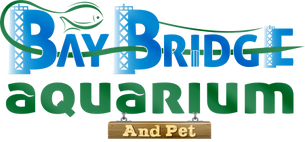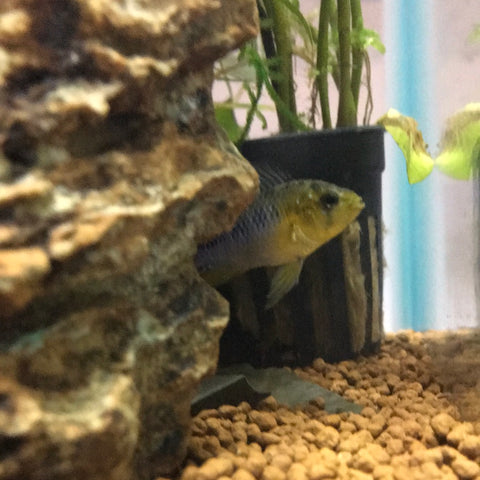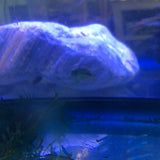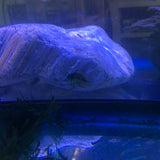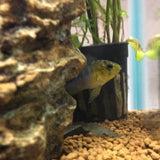Apistogramma borelli blue
Please contact us at info@baybridgeaquarium.com to confirm immediately availability. Livestock inventory is subject to change and prior sale. Fish shipments may take several days to fulfill.
Click Here to See Images
A speckled face with a shiny colorful blue body makes these fish a must for any aquarium! The fish is named after the zoologist who discovered it by the name of Alfredo Borelli (1858--1943).
The Apistogramma borellii, commonly known as the yellow dwarf cichlid or umbrella cichlid, is a captivating South American dwarf cichlid found in the Paraguay River and Paraná River. Here are some key points about this species:
-
Appearance:
- A. borellii displays two striking color morphs:
- Opal: Brilliant yellow dorsal, caudal, and anal fins with a body color ranging from pale purple to intense blue. The gill cover features mottled red, yellow, and blue markings.
- Blue: The more common morph, with blue hues throughout the body.
- Both morphs have tall, sail-shaped dorsal fins and rounded, spade-shaped tails. Their bodies are deep and narrow, often with a zigzag-shaped band running down their backs.
- A. borellii displays two striking color morphs:
-
Hardiness and Adaptability:
- A. borellii is hardy and adapts well to various water conditions, including colder temperatures.
- It’s an excellent choice for beginner aquarists due to its peaceful temperament.
-
Sexual Dimorphism:
- Males and females show few apparent differences, making them challenging to distinguish.
-
Tank Setup:
- Provide soft, acidic water conditions.
- Dark substrate, dense planting, and ample hiding places are essential.
- A secure tank cover is necessary as they can be prone to jumping.
-
Diet:
- A. borellii feeds on insects and crustaceans.
-
Breeding:
- Breeding pairs can be formed in spacious tanks with appropriate hiding spots.
- Provide caves or flat stones for egg deposition.
- The male guards the eggs and fry.
Images used on this site are for informational purposes only, for actual photos of livestock please contact us (877) 809-4067.
